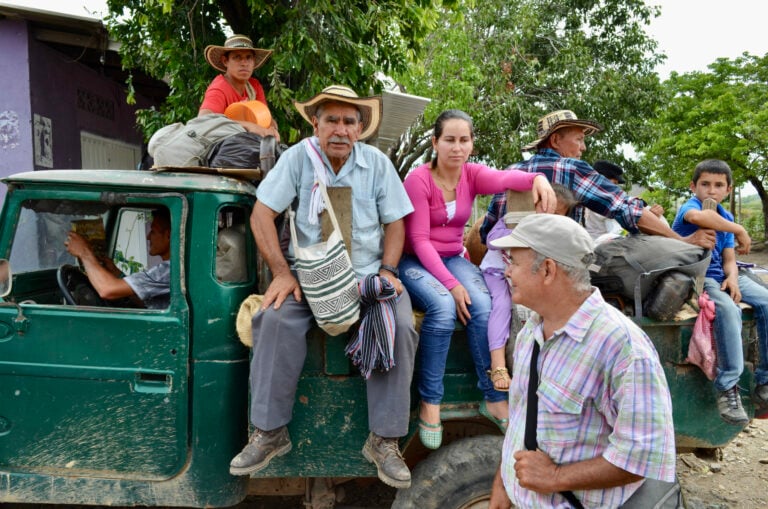
RWE’s arbitration case against Dutch state over coal ban inadmissible under EU law
Dutch taxpayers have already incurred € 5.4 million in arbitration costs in RWE and Uniper cases.
The arbitration case filed by German energy company RWE against the Dutch State based on the Energy Charter Treaty (ECT) is inadmissible under EU law. That is what the Federal Court of Justice in Karlsruhe ruled(opens in new window) today in the appeal filed by RWE. The court thereby confirms the verdict of the Cologne District Court that already declared the arbitration cases by both RWE and Uniper inadmissible last year based on previous rulings of the European Court of Justice. The German ruling does not directly affect the arbitration proceedings, but it sends a strong signal that RWE disrespects EU law with its claim.
Both RWE and Uniper submitted a request for arbitration to the International Center for Settlement of Investment Disputes (ICSID) based on the ECT in early 2021. In doing so, they claimed damages totalling €2.4 billion due to the introduction of the ban on the use of coal in power generation by 2030.
In addition, RWE and Uniper also brought national proceedings. Late last year, the court in The Hague ruled(opens in new window) that the measures taken by the Dutch government with the coal ban to reduce CO2 emissions were lawful, proportionate and foreseeable for the owners of the coal-fired power plants. Both RWE and Uniper have appealed.
Arbitration cases already cost Dutch taxpayers €5.4 million
Uniper withdrew its arbitration case earlier this year at the request of the German government, which took over the ailing German parent company in late 2022. On March 17th, 2023, the arbitral tribunal confirmed(opens in new window) the termination of the arbitration proceedings. In doing so, the tribunal rejected the Dutch State’s request to order Uniper to pay costs, ruling that there were no grounds to do so. As a result, the parties each bear their own costs.
Answers to parliamentary questions(opens in new window) reveal that this case has cost Dutch taxpayers €1.8 million. The legal assistance provided by law firm De Brauw Blackstone constitutes the most significant cost item, at over €1 million. The costs that relate to the arbitrators’ fees are not yet known. Current ICSID rules on fees provide that each member of the arbitral tribunal receives $3,000 dollars for each day of meetings or every eight hours of other work performed in connection with the proceedings, and subsistence allowances, travel allowances and other expenses under ICSID Administrative and Financial Regulation 14.
| Cost item | Amount |
| Initial costs of the proceedings | € 147.052 |
| Fees and expenses tribunal members | Unknown |
| Fees De Brauw Blackstone lawyers | € 1.018.556 |
| VAT lawyer fees | € 325.690 |
| Costs damage experts Compass Lexicon | € 304.354,70 |
| Translation costs | € 2.125 |
| Total | € 1.797.777,70 |
The RWE case has been temporarily suspended pending the appeal in Germany. The proceedings have already cost the Dutch State €3.6 million. These exorbitant costs in international arbitration are in stark contrast to proceedings in the Dutch courts. The estimated litigation costs(opens in new window) that RWE was ordered to pay as the unsuccessful parties, and the statutory interest thereon on the part of the Dutch State, amounted to only €20,196. By comparison, the registry costs in the arbitration case amounted to € 147,052, more than seven times the litigation costs of the national proceedings.
| Cost item | Amount |
| Initial costs of the proceedings | € 147.052 |
| Fees and expenses tribunal members | Unknown |
| Fees De Brauw Blackstone lawyers | € 1.455.983 |
| VAT lawyer fees | € 601.833 |
| Fees Foley Hoag LLP lawyers | € 206.554 |
| Costs damage experts Compass Lexicon | € 1.115.573 |
| Additional costs Compass Lexicon | € 24.799 |
| Costs of hiring expert | € 10.000 |
| Translation costs | € 6.375 |
| Total | € 3.568.169 |
SOMO researcher Bart-Jaap Verbeek: “The ban on coal in power generation is an important step in achieving the climate goals. The verdict of the court in The Hague was already clear: the owners of the coal-fired power plants could have seen the ban coming for a long time. Now the court in Karlsruhe also indicates that the arbitration cases violate EU law. It is outrageous that the Dutch State is forced to pay millions in legal costs to have to defend the coal ban in these international arbitration cases. These costs will increase even further if RWE decides to resume the case, and it is the taxpayer who will ultimately have to cough it up.”
Dutch treaties facilitate arbitration cases worldwide
Thanks to social and political pressure, the Netherlands has announced(opens in new window) its exit from the ECT on the grounds that it gives protection to fossil fuel investments and is thus not in line with Dutch and European climate goals. But at the same time, the Netherlands still has dozens of bilateral investment treaties with countries in Asia, Africa and Latin America, practically all of which include investor-to-state dispute settlement (ISDS). These treaties have already led to 106 known arbitration cases, making the Netherlands the second-most popular country in the world from which investors lodge the most claims. The Netherlands is currently negotiating with Ghana(opens in new window) and Nigeria(opens in new window) to replace the existing bilateral treaties based on a new model that still contains ISDS. The Netherlands also continues to support ISDS-light reform in a number of European free trade agreements that are currently being or have already been negotiated, such as with countries like Singapore, Vietnam, Mexico, Chile, Indonesia and India.
“The Netherlands is now experiencing for itself what it means to be on the receiving end of ISDS claims and what costs are involved. The Netherlands should therefore stop imposing this system on countries that have less financial clout to defend themselves in these kinds of very expensive arbitration cases.”
Related news
-

-

-
A just energy transition requires rich countries to address their overconsumption of resourcesPosted in category:Published on:Statement



